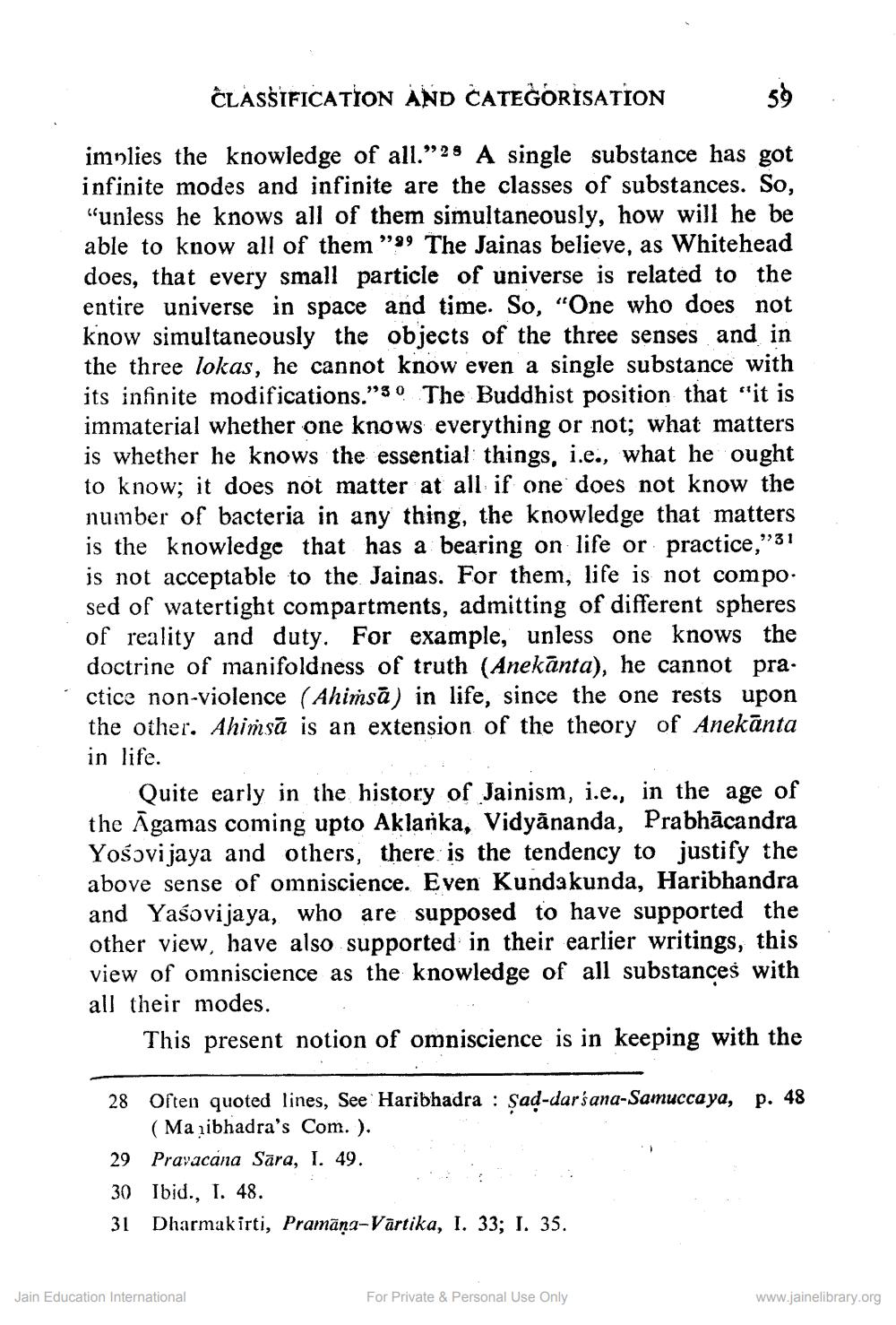________________
CLASSIFICATION AND CATEGORISATION
implies the knowledge of all.” 28 A single substance has got infinite modes and infinite are the classes of substances. So, "unless he knows all of them simultaneously, how will he be able to know all of them "99 The Jainas believe, as Whitehead does, that every small particle of universe is related to the entire universe in space and time. So, "One who does not know simultaneously the objects of the three senses and in the three lokas, he cannot know even a single substance with its infinite modifications.”go The Buddhist position that "it is immaterial whether one knows everything or not; what matters is whether he knows the essential things, i.e., what he ought to know; it does not matter at all if one does not know the number of bacteria in any thing, the knowledge that matters is the knowledge that has a bearing on life or practice,"31 is not acceptable to the Jainas. For them, life is not compo. sed of watertight compartments, admitting of different spheres of reality and duty. For example, unless one knows the doctrine of manifoldness of truth (Anekanta), he cannot pra. ctice non-violence (Ahimsā) in life, since the one rests upon the other. Ahimsā is an extension of the theory of Anekānta in life.
Quite early in the history of Jainism, i.e., in the age of the Āgamas coming upto Aklanka, Vidyānanda, Prabhācandra Yośɔvijaya and others, there is the tendency to justify the above sense of omniscience. Even Kunda kunda, Haribhandra and Yasovijaya, who are supposed to have supported the other view, have also supported in their earlier writings, this view of omniscience as the knowledge of all substances with all their modes.
This present notion of omniscience is in keeping with the
28 Often quoted lines, See Haribhadra : Sad-darśana-Samuccaya, p. 48
(Maibhadra's Com.). 29 Pravacana Sara, I. 49. 30 Ibid., I. 48. 31 Dharmakirti, Pramāņa-Vārtika, I. 33; I. 35.
Jain Education International
For Private & Personal Use Only
www.jainelibrary.org




